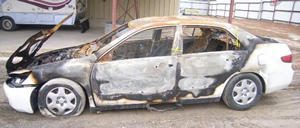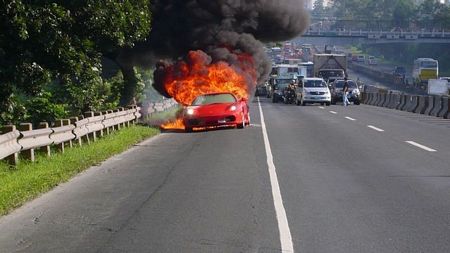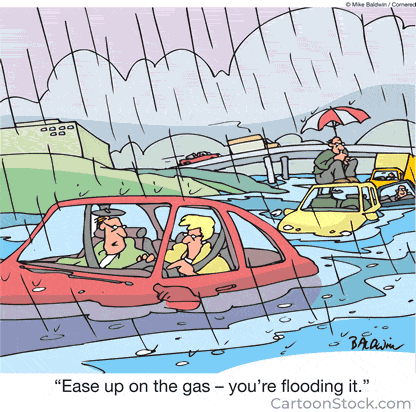Vehicle Fires

If you've spent much time in salvage yards you'll notice many burned vehicles. A burning car is a frightening situation and can lead to tragedy.
 If you notice smoke coming from under your hood or smell smoke:
If you notice smoke coming from under your hood or smell smoke:
- Use your turn signal and move to the right lane.
- Pull over, out of traffic, and investigate..
- Shut off the engine and all electrical switches.
- Get yourself and all other passengers out of the vehicle. Noxious fumes may fill the interior.
- Keep onlookers away and warn other driver's to stay away.
Dangers of Car Fires
Car fires are a very real and dangerous risk that drivers face every day. While fires are relatively rare, they can be catastrophic when they do occur. The consequences of a car fire can range from minor inconvenience to significant property damage, injury, and even death. It is important for drivers to understand the risks and take the necessary steps to prevent car fires from occurring.
Car fires can be caused by a variety of factors, including mechanical failure, electrical problems, fuel leaks, and even arson. Mechanical and electrical issues account for the majority of car fires, and they can often be prevented with proper maintenance. For example, faulty wiring or loose connections can cause sparks that can ignite fuel or other flammable materials, while a broken fuel line can cause fuel to leak and pool on the ground, which can be ignited by a spark.
Fuel leaks can also cause car fires. This is most common in cars with older fuel lines, which may be more prone to leaking and can be made worse by corrosion or other damage. Fuel leaks can also be caused by a defective fuel cap or fuel tank. In some cases, fuel may leak from the fuel line into the engine compartment, where it can be ignited by a spark or other source of heat.
Arson is another common cause of car fires. Arson fires can be a result of vandalism or malicious intent, and they can cause significant damage and injury. Arson can also be a factor in car fires caused by mechanical and electrical issues, as arsonists may tamper with a car's wiring or fuel lines in an attempt to cause a fire.
Fortunately, there are steps drivers can take to reduce the risk of their car catching fire. The most important step is to ensure that your car is properly maintained. This means checking the car's wiring and fuel lines for damage or wear and tear, and ensuring that the fuel cap is properly sealed. Additionally, it is important to check the car before long trips and to never leave the car running unattended.
Drivers should also be aware of the risks of car fires and be prepared to act in the event of a fire. This means having a fire extinguisher in the car and knowing how to use it properly. Additionally, drivers should know how to safely evacuate the car in case of a fire, and should never try to extinguish the fire themselves.
Car fires can be a frightening experience, but they can be prevented with proper maintenance and preparation. Understanding the risks and taking the necessary steps to avoid car fires can help drivers stay safe on the road.















